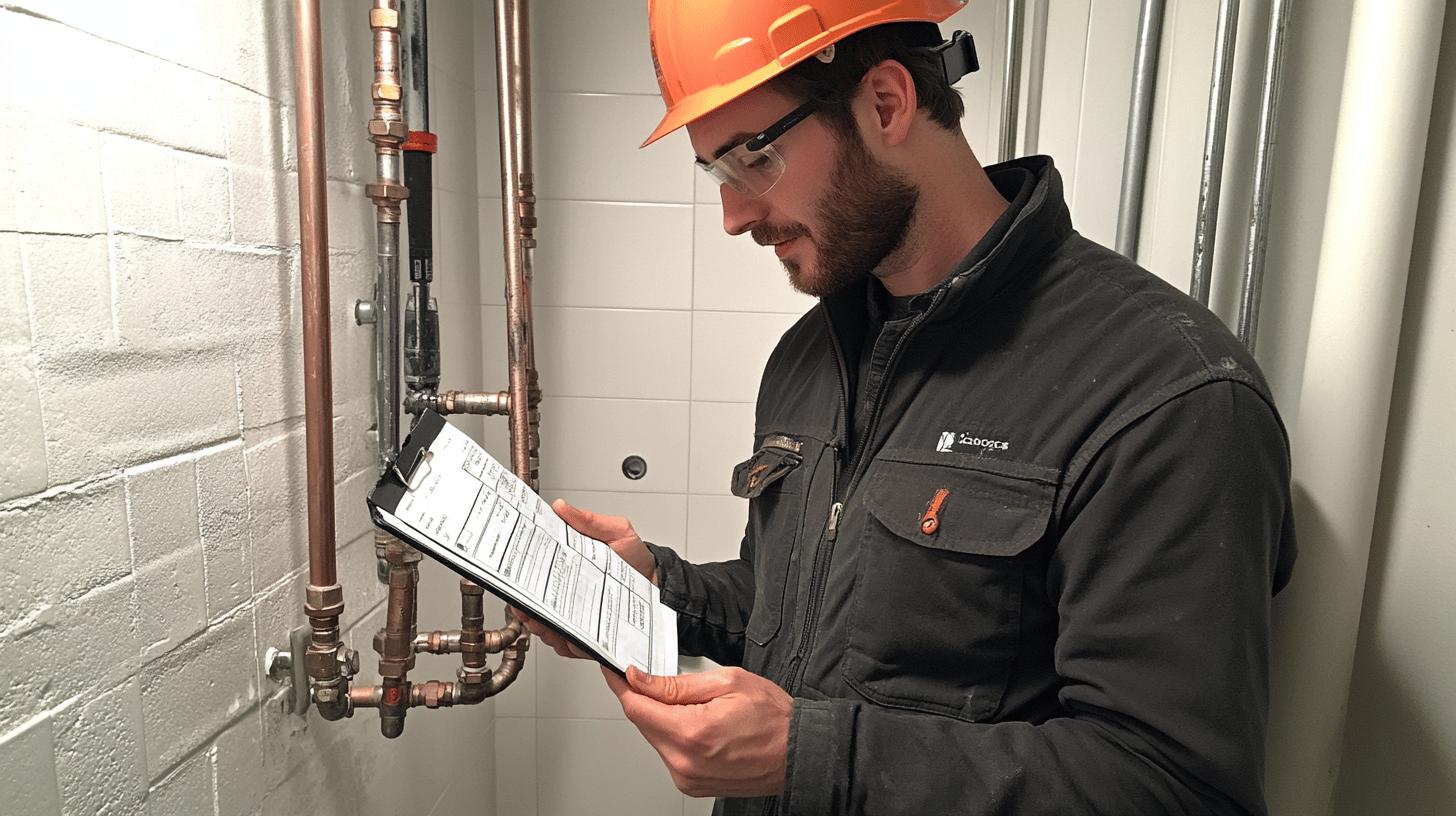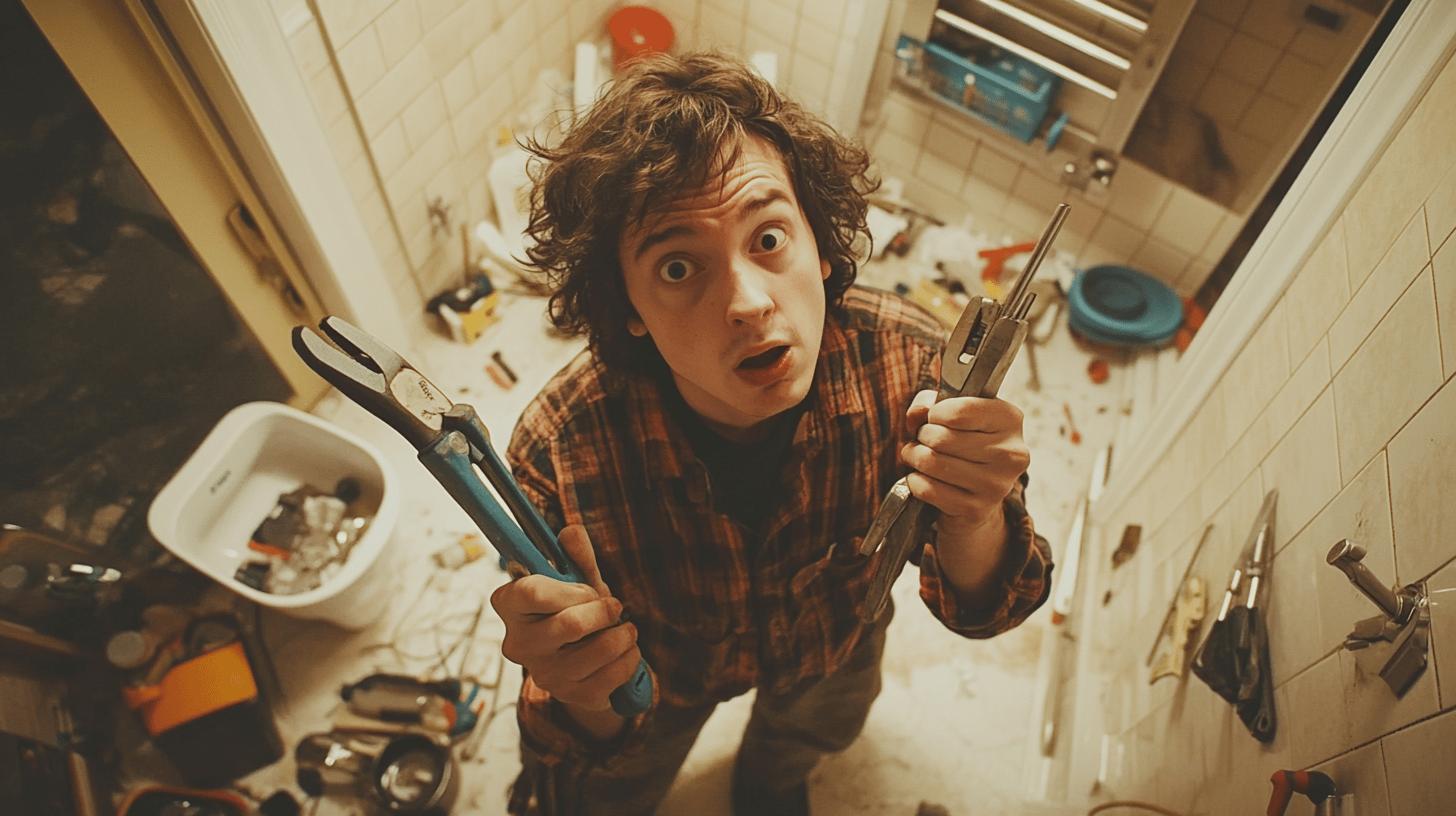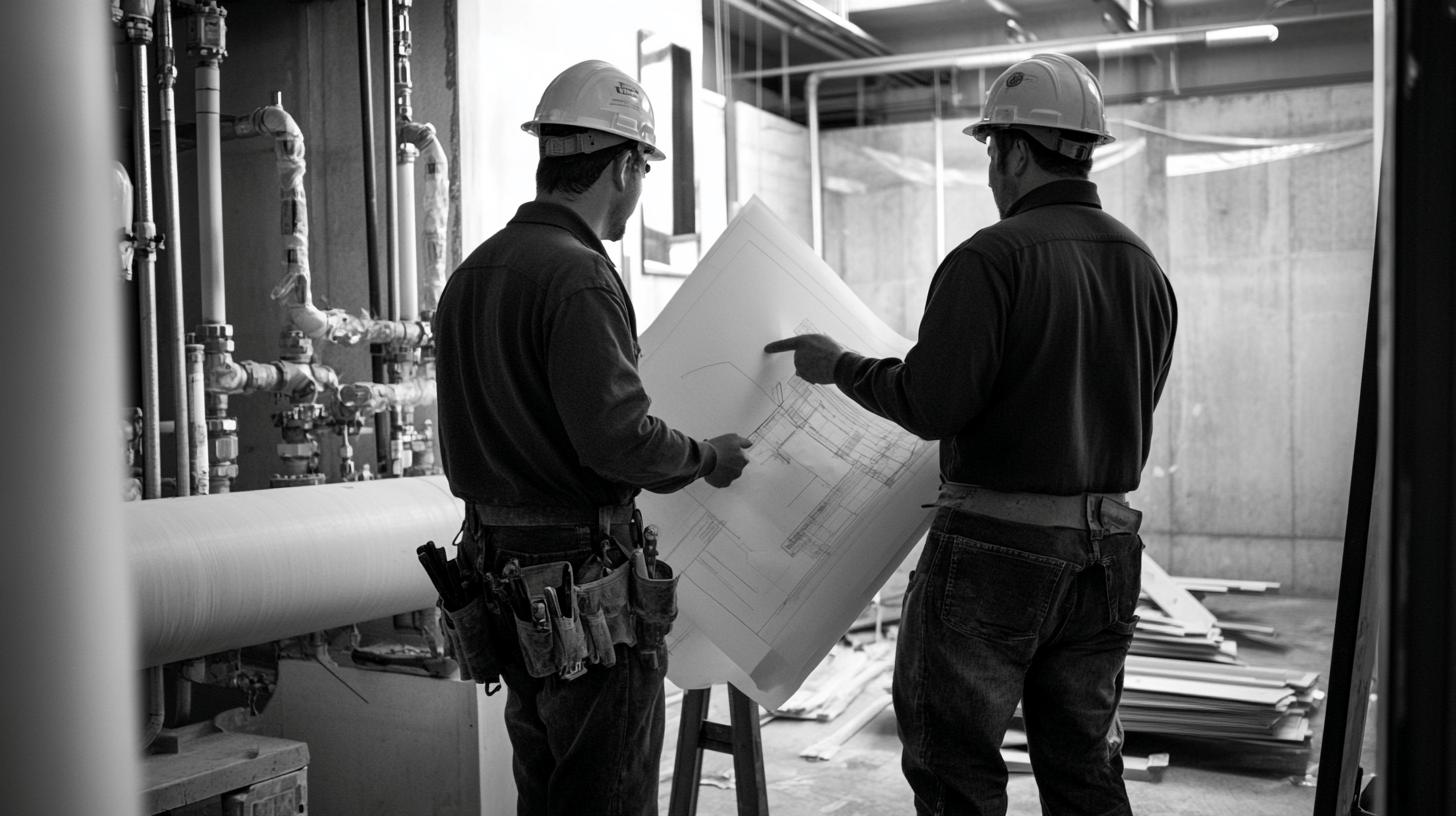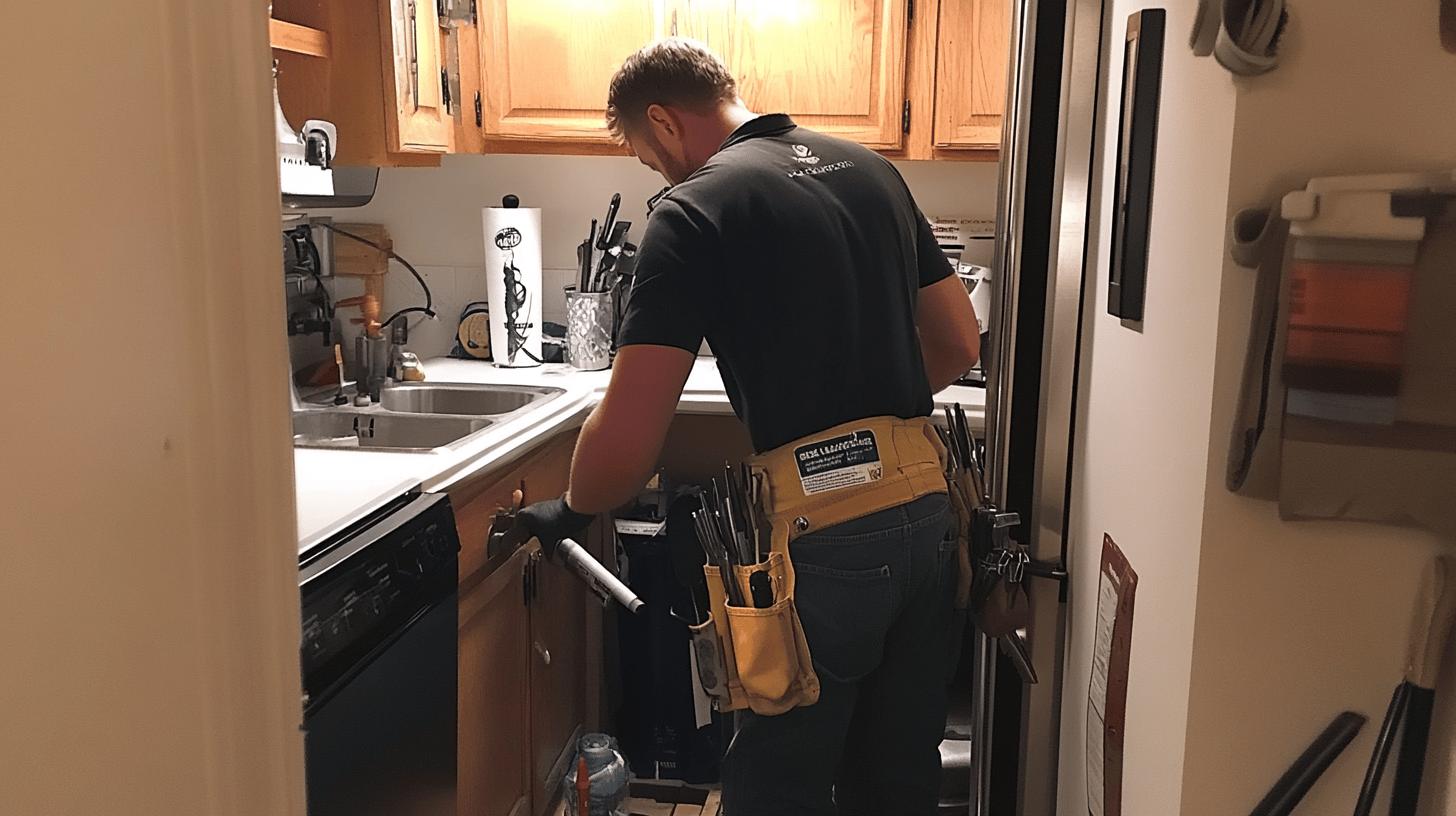TL;DR:
- Plumbing legal requirements ensure safety and compliance with standards, protecting public health.
- Key codes include backflow prevention, pipe sizing, fixture installation, drain slope, and cleanout access.
- Plumbing permits are often required for major projects; inspections ensure compliance.
- Licensing paths include apprenticeship, journeyman, and master plumber; requirements vary by state (e.g., Alabama, California).
- Consulting licensed plumbers minimizes legal risks in DIY projects; common mistakes lead to violations.
- Recent updates in plumbing codes focus on water conservation and backflow prevention.
- Residential codes address safety; commercial standards are stricter due to greater usage demands.
Have you thought about how not following plumbing laws could affect your home or business? Ignoring these rules can lead to expensive fines, repairs, and even health risks. That’s why it’s important to understand and follow plumbing codes for any project. In this article, you’ll learn about key national and state regulations, like the Safe Drinking Water Act of 1974, that shape plumbing practices. By the end, you’ll see why hiring a professional plumber is essential for navigating these complex requirements.
Understanding Plumbing Legal Requirements
Plumbing laws are essential for safety, efficiency, and meeting standards. The National Uniform Plumbing Code (UPC) serves as a key guide, outlining how to install and maintain plumbing systems. States can modify these codes to fit local needs, so plumbers need to check both state and local regulations before starting any job. You might wonder, “Why are plumbing codes so important?” The answer is straightforward: they help protect public health by preventing water contamination and ensuring safe water systems. Ignoring these codes can put infrastructure and safety at risk.
A major regulation to know is the Safe Drinking Water Act (SDWA) of 1974. It focuses on preventing backflow, which keeps clean water safe from contamination. This law requires the installation of backflow prevention devices, ensuring that dirty water can’t mix with clean supplies and putting health first. Professional plumbers are well-versed in these requirements, making sure installations meet both federal standards and local laws.
Neglecting plumbing codes can lead to serious problems like costly repairs, legal issues, and health hazards. When you ask, “What happens if I don’t follow plumbing codes?” remember that violations can result in fines, delays, and structural damage. That’s why hiring a professional plumber is so important—not just for compliance but also for their expertise in avoiding common mistakes. Their knowledge ensures that plumbing systems are installed safely and correctly.
Here are 5 essential plumbing codes every professional plumber must follow:
- Backflow Prevention: Required by the SDWA to avoid contamination.
- Pipe Sizing: Ensures water flow efficiency and balance.
- Fixture Installation: Compliant with standards for efficiency and safety.
- Drain Slope: Proper slope prevents sewage backups.
- Cleanout Access: Necessary for maintenance of concealed devices.
The Necessity of Plumbing Permits and Inspections

When do you need plumbing permits? Typically, permits are required for projects that exceed certain costs or involve significant plumbing changes. They ensure that work complies with local and national building codes. Permits help verify that plumbing installations meet safety and quality standards, reducing the risk of issues like water contamination or structural damage. Experienced plumbers can navigate these requirements, ensuring everything is legally and technically sound.
What about plumbing inspections? Inspections are essential for maintaining safety and compliance. They check various aspects of a project, like the proper slope of drainpipes and correct cleanout installations. Inspections make sure the work meets regulations, lowering the risk of future problems like leaks or blockages. Inspectors can identify and resolve potential issues early, saving homeowners from expensive repairs and extending the life of their plumbing systems. Hiring a professional plumber can help secure the necessary permits and ensure the work passes inspection, giving you peace of mind and safety.
| Permit Type | Inspection Focus |
|————————-|———————————————-|
| New Construction | Compliance with building codes |
| Major Renovations | Structural integrity and plumbing layout |
| Water Heater Replacement| Proper installation and venting |
| Sewer Line Work | Correct slope and connection to main sewer |
Licensing Requirements for Plumbers
What are the common paths to becoming a licensed plumber? The journey usually starts with an apprenticeship, where aspiring plumbers get hands-on experience and technical knowledge from experienced professionals. This stage is essential for learning the basics and typically lasts several years. After completing the apprenticeship, they can earn journeyman status by passing an exam and demonstrating their work experience. The final step is obtaining a master plumber license, which involves more exams and additional experience, often in supervisory roles. Master plumbers can take on complex projects and oversee others to ensure quality and compliance.
How do licensing requirements differ by state? Each U.S. state has its own plumbing certification rules. For example, Alabama requires certification from the Alabama Plumbers & Gas Fitters Examining Board, focusing on plumbing and gas fitting skills. On the other hand, California requires four years of journeyman-level experience for a contractor license, emphasizing practical skills. These variations show the importance of knowing local regulations and meeting state-specific requirements to practice legally and professionally.
Why should you hire licensed professionals for plumbing projects? Licensed plumbers have proven skills that ensure their work meets national and state codes. Their expertise minimizes the risks of errors and safety issues, like leaks or poor installations. They also handle inspections, making sure projects comply with regulations and protecting homeowners from legal troubles. Hiring a certified plumber gives you peace of mind, knowing the job is done to the highest standards.
Here are 5 states with unique licensing requirements:
- Alabama: Certification by the Alabama Plumbers & Gas Fitters Examining Board.
- California: Requires four years of journeyman-level experience for contractor licenses.
- Florida: State contractor licenses needed for certain monetary plumbing work.
- New York: Licenses issued by city or county, not statewide.
- Texas: Managed by the Texas State Board of Plumbing Examiners.
Legal Considerations for DIY Plumbing

What are the risks of DIY plumbing? The biggest risk is that you might do work that doesn’t follow local codes. This can lead to fines or legal trouble if your project violates regulations. Non-compliance could also mean you have to redo renovations and face higher insurance costs. If you don’t do the job right, you could cause damage like leaks or burst pipes, which can be super expensive to fix. So, it’s really important to stick to building codes to protect your property and finances.
Why is it important to consult professional plumbers? They are trained and licensed, which means they understand all the complex plumbing codes and regulations. Their expertise helps ensure everything is legal and minimizes future risks. Hiring a pro not only avoids legal issues but also gives you peace of mind knowing the work is safe and done correctly. Plus, their oversight can prevent costly mistakes, ensuring your plumbing system runs smoothly and reliably.
Here are 4 common DIY plumbing mistakes leading to legal issues:
- Improper Installation of Backflow Prevention Devices
- Incorrect Pipe Sizing or Material Use
- Failure to Obtain Necessary Permits
- Non-compliant Fixture Installations
Updates on Plumbing Codes and Regulations
What are the recent changes in major plumbing codes like the IPC and UPC? Recently, the International Plumbing Code (IPC) and Uniform Plumbing Code (UPC) have been updated with new safety and efficiency standards. These updates include improvements for water conservation, new material standards, and stricter backflow prevention requirements. These changes help meet today’s sustainability and reliability needs, which can impact how projects are planned and executed.
How can plumbers stay informed about regulatory changes? Plumbers should connect with professional associations for resources and updates on standards. These groups offer training, webinars, and publications about new developments, helping plumbers navigate the complex regulations. By using these resources, plumbers can stay compliant and ensure their work meets current requirements, avoiding violations and improving service quality.
- Updated water conservation standards for fixtures
- Increased backflow prevention requirements
- New material standards for plumbing installations
Plumbing Standards for Residential and Commercial Properties

What are residential plumbing standards? These standards are in place to ensure safety and functionality in homes. They specify the correct pipe sizes needed for efficient water flow and set regulations for fixture installations, making sure sinks, toilets, and showers are efficient and safe. Proper venting and drainage are also required to prevent water contamination. Overall, these standards help residential systems work effectively while minimizing hazards and maintenance issues.
What makes commercial plumbing regulations more complex? Commercial plumbing regulations are stricter because commercial properties have larger systems and higher usage demands. They require stronger plumbing systems to handle increased pressure and flow rates. Additionally, commercial setups often use specialized equipment like industrial water heaters, which come with their own compliance requirements. This complexity means that careful planning is necessary to meet all the regulatory needs.
Why are professional plumbers better for compliance in both settings? Professional plumbers have the expertise to navigate complex codes and standards. Their training helps them accurately assess and implement the necessary compliance measures, whether for homes or large buildings. They also manage inspections to ensure all installations meet legal regulations, preventing costly mistakes and ensuring that plumbing systems are safe and reliable.
Here are 4 key differences between residential and commercial plumbing standards:
- Scale and Capacity: Commercial systems handle higher volumes.
- Fixture Requirements: More industrial-grade fixtures in commercial settings.
- Code Complexity: Stricter codes and regulations for commercial properties.
- System Integration: Advanced system integration needed in commercial setups.
Final Words
Understanding plumbing legal requirements is super important for any plumbing project. Knowing the national and state plumbing codes, getting the right permits, and securing the necessary licenses keeps your work compliant. While DIY plumbing might look appealing, it comes with major risks and legal liabilities.
Hiring a professional not only boosts safety but also guarantees that the job is done legally and efficiently. Keeping up with industry standards helps you stay in line with changing regulations. By focusing on these aspects, you can enjoy a smooth, hassle-free plumbing experience, ensuring your property functions well without any compliance issues.
FAQ
Q: What are the legal requirements for plumbing in California?
Plumbing legal requirements in California involve adherence to the California Plumbing Code, which mandates compliance with safety and efficiency standards.
Q: Can I find plumbing codes and standards in a PDF format?
Yes, plumbing codes and standards, including the International Plumbing Code and Uniform Plumbing Code, are available in PDF format for easy reference.
Q: Do plumbers need to be licensed in South Carolina?
Plumbers must possess a South Carolina plumbing license to legally perform work within the state.
Q: Can plumbing work be done without a license in Illinois?
Minor repairs and installations, like fixing faucets, do not require a license, but major plumbing work does.
Q: What plumbing work can be done without a license in Indiana?
Simple tasks like unclogging drains can be done without a license, but more complex work requires official licensing.
Q: Are there plumbing license requirements in Hawaii?
Yes, Hawaii requires plumbers to have licenses, which necessitate passing exams and meeting experience qualifications as dictated by the Hawaii Department of Commerce and Consumer Affairs.
Q: Is it possible to transfer a plumbing license to another state?
Transferring a plumbing license between states can be challenging, as each state has specific requirements and may not offer reciprocity.
Q: Do I need a plumbing license in Nebraska?
Plumbing work in Nebraska generally requires a license, especially for substantial projects, to ensure compliance with state regulations.
Q: Which states do not require a plumbing license?
Some states, like Kansas, offer limited exemptions for certain small-scale jobs but typically require licenses for professional plumbing work.
Q: What are the benefits of hiring a licensed plumber?
Hiring a licensed plumber ensures adherence to local laws and codes, guarantees professional quality, and reduces liability for potential damages.

